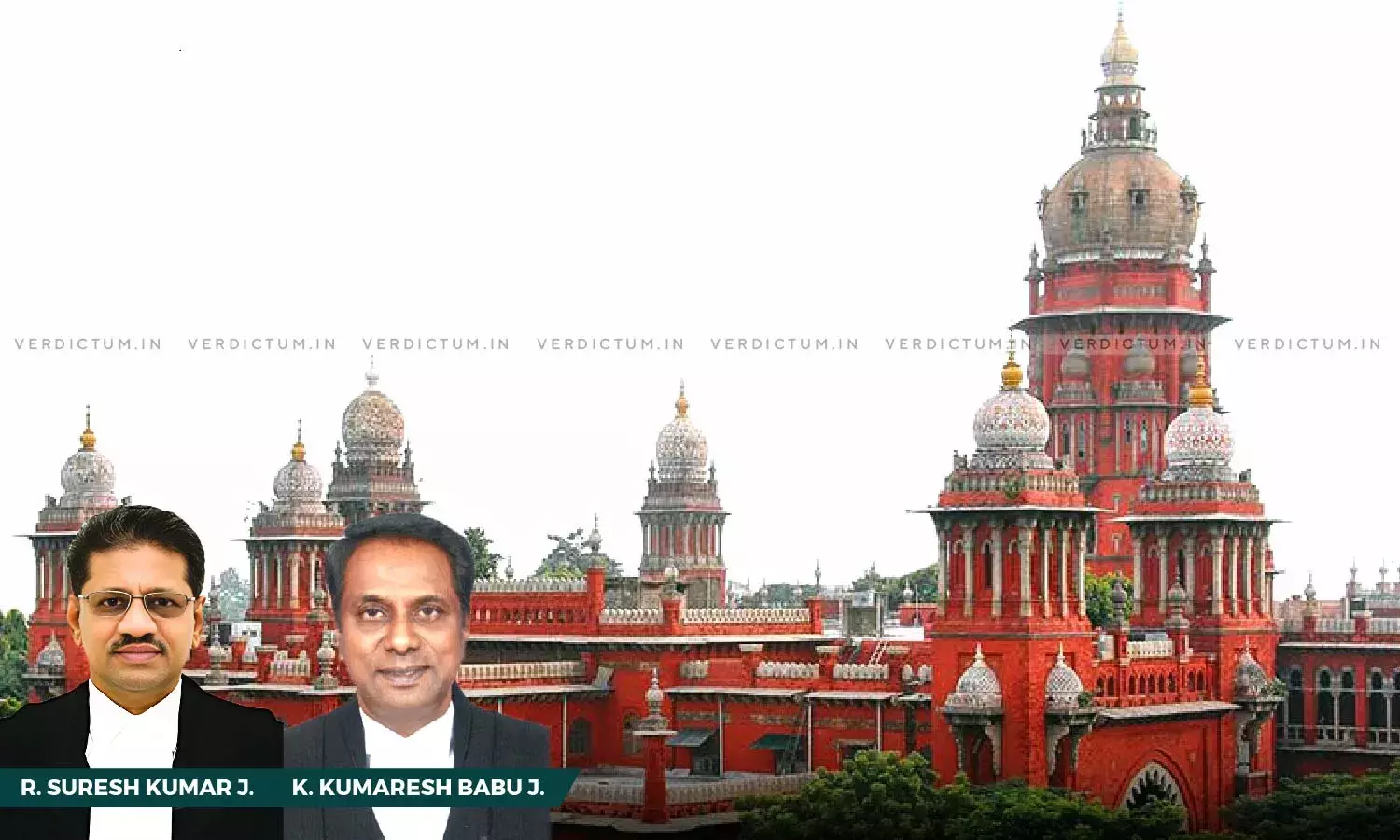Madras HC Allows State Govt To Withdraw Appeals Against Order Relating To Alleged Irregularities In Construction Of New Legislative Buildings

The Madras High Court allowed the Tamil Nadu Government to withdraw the appeals against the order of the Single Judge by which the government order relating to the alleged irregularities in the construction of new legislative buildings was quashed.
The Court was deciding the writ appeals filed under Clause 15 of Letter Patent by the State Government.
A Division Bench comprising Justice R. Suresh Kumar and Justice K. Kumaresh Babu said, “… we are of the considered view that the reason attributed by the impleading petitioner that the State had been prosecuting their cause hitherto and only when the State decided to withdraw itself, then such impleadment had become necessciated, we are of the view that this impleading application cannot be thrown out on the ground of delay and latches.”
The Bench noted that the Court cannot insist upon a party to conduct the case, particularly, when a party wishes to abandon his claim without reserving any right.
AG P.S. Raman represented the appellants while Senior Advocate P. Wilson represented the respondents.
Brief Facts -
During the years 2006-2011, the Tamil Nadu government took a policy decision to construct new legislative assembly buildings and at that relevant point of time, the political party to which the M.K. Stalin and Durai Murugan (respondents) in the respective appeals belonged to was in power. In the assembly elections held in the year 2011, the rival political party had gained power. Thereafter, on various allegations which were made against the way the construction of the new assembly building was carried out, an enquiry commission under the chairmanship of retired Judge of the High Court was formed. Since the Chairman demitted his office by resignation, another retired judge was appointed in his place. After the new incumbent had assumed office, and pursuant to the documents collected by the authorised officer, summons were issued to the respective individuals. Challenging the said summons, a writ petition was filed by the former Chief Minister, who had headed the Government during the said period.
Pursuant to the order made by the Single Judge, the chairman of the commission demitted his office. The resignation was also accepted by the government and thereafter, the Government Orders were issued, directing the Secretary of the Enquiry Commission to handover all the records, reports of the investigating agencies, statements and evidences collected by the Enquiry Commission to the office of the Director of Vigilance and Anti-Corruption. The same was followed up with the letter by the Principal Secretary of the Government to the said Director according permission to conduct a detailed enquiry in this regard. The State in the respective appeals, had sought permission of the court to withdraw the petitions filed by them challenging the appointment of the Enquiry Commission and all its further proceedings including the summons issued to them. The Single Judge permitted them to withdraw their petition, but had made certain observations. Challenging the said observations, they had filed Intra Court Appeals.
The High Court in view of the facts and circumstances of the case observed, “The learned Senior counsel for the first respondent had also relied upon the judgment of the Hon'ble Apex Court where an application by a impleading petitioner was rejected by the Hon'ble Apex Court on the question of delay and latches. It is a well known jurisprudence that the judgment of a Court would have to be read as a whole so as to arrive at a conclusion as to on what basis such ratio has been declared. In respect of the other judgments relied upon by the learned Advocate General as well as Mr.P.Wilson, learned Senior counsel for the respondents, we are of the view that the said judgments had been made in the facts and circumstances of that cases, the same could not be sought to be applied in the present facts of the case.”
The Court further observed that what the Single Judge by way of an interim order had made was that he had left it open to the State to take a decision after analysing the materials available before it and even though a decision was taken earlier to direct a detailed enquiry, the same was set aside in the impugned judgments, against which the State had preferred the Intra Court Appeals, and they now seek to withdraw the same.
“When a person, had instituted or initiated a proceedings before the Court, it is always open to him to withdraw or abandon his claim as has been held in the case of Anurag Mittal vs. Shaily Mishra Mittal reported in (2018) 9 SCC 691. … In such an event, the Court cannot insist upon a party to conduct the case, particularly, when a party wishes to abandon his claim without reserving any right”, it added.
“We are also conscious of the fact that the Government Order and the direction issued by the Government to conduct a detailed enquiry which they now seek to wriggle out, cannot take away the right of the impleading petitioner from seeking appropriate remedy in the manner known to law, if he is so advised, since his complaint has also been closed by the third appellant as evidenced from the report, that had been extracted supra”, it concluded.
Accordingly, the High Court dismissed the writ appeals as withdrawn.
Cause Title- The State of Tamil Nadu & Ors. v. M.K. Stalin & Anr.
Appearance:
Appellants: AG P.S. Raman, Spl. G.P. S. Anitha, Addl. P.P. R. Muniyapparaj, and PP Hasan Mohammed Jinnah.
Respondents: Senior Advocate P. Wilson


